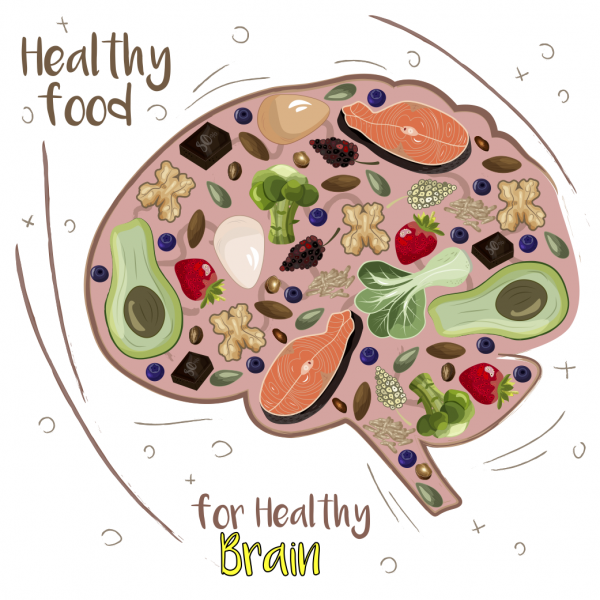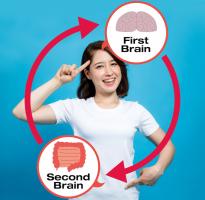
 Psychologists have created various labels for people who have problems in social relationships. These include obsessive-compulsive disorder, paranoid personality disorder, antisocial personality disorder, and narcissistic personality disorder. These labels are used to describe people who have difficulty creating functional, cooperative, and happy relationships with other people and they are common in modern society. They are reported to affect about 10% of the population.
Psychologists have created various labels for people who have problems in social relationships. These include obsessive-compulsive disorder, paranoid personality disorder, antisocial personality disorder, and narcissistic personality disorder. These labels are used to describe people who have difficulty creating functional, cooperative, and happy relationships with other people and they are common in modern society. They are reported to affect about 10% of the population.
These labels are considered diagnostic, but they are actually somewhat arbitrary. They’re not based on objective data (like lab tests, X-rays, and observable physical symptoms), instead they are applied when enough behaviors from a specified list match. So, instead of helping to understand the source of problematic behaviors they serve to reduce an individual to a simple label. And these labels may actually do more harm than good.
There are several problems with this approach. Personality traits exist on a spectrum. Take narcissism for example, which is related to self-importance. Some people are extremely self-centered (caring almost exclusively about their own needs and wants) and other people are extremely other-centered (caring more about other people’s needs and wants than they do about their own). Most people exist somewhere in between these two poles because both ends of the spectrum are equally dysfunctional. But when someone is labeled narcissistic, even if they aren’t at the extreme end of the spectrum, it makes it seem like they are.
This leads into the second problem. These labels suggest that a person just is a certain way. They are obsessive, paranoid, narcissistic, or defiant. When someone accepts such a label, it implies they have no power to change. And the label also serves as a type of judgment for those they associate with, because if they are that way, then people around them continue to expect them to be that way. This increases the feelings of rejection, isolation, and alienation which is often a contributing factor to behavioral problems.
But, the biggest problem with modern psychiatry is the lack of holistic thinking about these problems. There is a tendency to treat the mental and emotional aspects of a person as if they were separate from the physical aspects. Thus society fails to see how poor nutrition, environmental toxins, and physical health issues contribute to mental and emotional problems. Another important aspect that is sometimes overlooked is the way that mental and emotional trauma adversely affects physical health.
Therefore, in this issue of Sunshine Sharing we’ll be looking beyond the labels to take a holistic approach to behavioral problems. We’ll examine several factors which can be root causes of these problems and offer suggestions to help to correct them.
Nutrition and Mental Health
There is some interesting evidence that demonstrates how nutrition affects mental health and behavior. Francis M. Pottenger conducted a ten-year study showing how diet can affect both physical health and behavior in cats. In the study he fed four groups of cats different diets. He fed raw meat and raw milk to one group of cats and they thrived generation after generation. They were strikingly uniform in size and skeletal development for each sex. The animals were also friendly, even-tempered and well-coordinated.
In the other three groups of cats he replaced the raw milk and meat in their diets with either cooked meat, pasteurized milk, or sweetened condensed milk. All three of these groups failed to thrive, but the third group that was fed the sugary condensed milk had the worst problems. They developed heavy fat deposits and skeletal deformities and became irritable and nervous. While the cats fed pasteurized milk or cooked meat did better, they still suffered severe signs of degeneration and either became excessively irritable and aggressive or docile and unassertive.
Food Made Mice Physically and Mentally Ill
In her book, Why Suffer?, Ann Wigmore relates the experience of a pet shop owner which demonstrates that modern food can make people both physically and mentally ill.
This man raised healthy white mice as pets and sold them by the thousands. He fed them seeds, grass, and various grains, until a friend who ran a boarding house, convinced him that feeding the mice the free table scraps from her kitchen would increase his profits.
He thought he had a great thing going when he made this money-saving change until the mice began to show signs of poor health, with some even dying. Again, they not only showed signs of physical illness, the personality of the mice also changed. They became quarrelsome and fights became commonplace, even to the point of killing and eating each other.
Realizing his mistake, he started feeding the mice their old diet of natural foods. But he found it interesting that these problems weren’t due to drugs, ill-treatment, or starvation. They all stemmed from “eating the food human beings ordinarily consume.”
 Poor Nutrition and Juvenile Delinquency
Poor Nutrition and Juvenile Delinquency
As further evidence of the link between behavioral problems and nutrition, consider the work of Barbara Reed, a parole officer working with juvenile delinquents. In her book, Food, Teens and Behavior she relates her discovery that a huge proportion of the young people she saw who were getting into trouble with the law were “junk-food junkies.” And, many also had problems with alcohol.
The connection seemed obvious to her. She thought, “If these young men and women were living on processed foods and snacks, how could they get the nutrients their central nervous system needed to function properly? And, if their brains and nerves were malfunctioning, how could one expect them to behave sanely in society?”
She has had incredible success in rehabilitating young criminals by getting them to adhere to a good nutritional program. Youth who avoided sugar, white flour, sodas, alcohol, and processed snacks in favor of fresh fruits, vegetables, and whole grains never had any further trouble with the law.
It’s quite reasonable to assume that nutritional deficiencies could cause problems with the brain that create anti-social behavior. If someone’s brain is malnourished and they can’t think clearly then counseling, rewards and punishments, and reasoning will not be very effective. If this is the case, it is a mystery why nutritional deficits are so often ignored in working with behavioral disorders.
Become a Member
Steven Horne's monthly member program is a way for you to get great information about herbs and natural healing to build your herbal business. Including the ability to share issues of Sunshine Sharing like this one. Click here to learn more.


